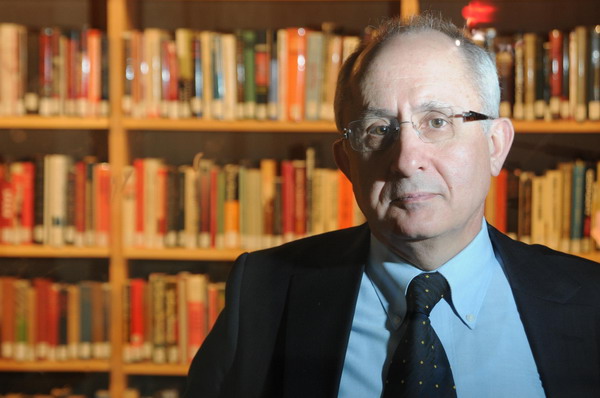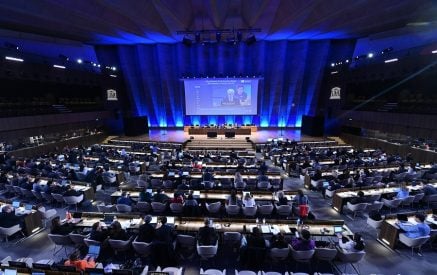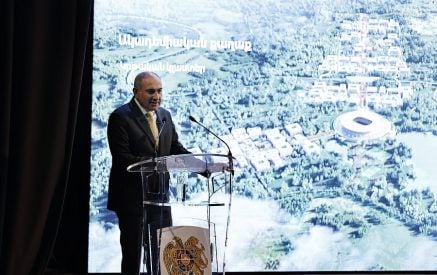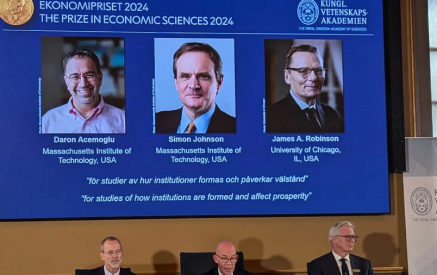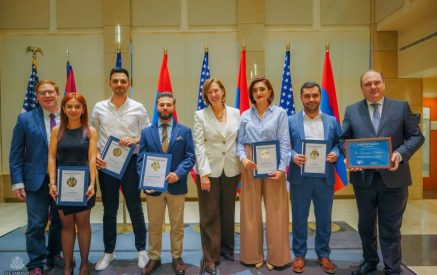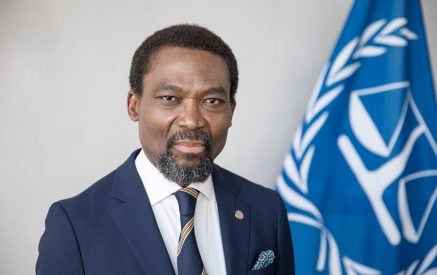Interviewee of Aravot.am is Turkish historian and sociologist Taner Akçam
– You devoted decades of your life to Armenian Genocide issue. What is your motivation?
There are three major reasons here. Number one: I am a scholar, I am a historian working on mass atrocities in the past. So this is my job. Regardless Turkey recognizes Armenian Genocide or not it is my duty to teach younger generations on mass atrocities, so that they learn what has happened in the past and also they try to prevent similar events happens in the future. Look, Germany recognized the Holocaust, but there are so many Holocaust scholars working on the topic. So this is number one: I am doing my job as a historian and there is nothing unusual what I am doing here.
Number two: of course, it has something to do with developments in Turkey: when Turkey denies. I am very much worried that my country continues to deny the Armenian Genocide. As a citizen of Turkey, I know not acknowledging historical wrongdoings creates a major problem for the future of the country. It is my firm believe that Turkey has today a lot of problems related to democracy, related to human rights, and related to ethnic-religious issues. And one of the reasons why Turkey still today struggles so much with these problems is that Turkey denies facing its history. If Turkey acknowledges historical wrongdoing Turkey can establish a better democracy, a society that respects human rights and better future for them. And it has a direct connection with good relations with their neighbors. This is the second important reason because as a Turkish citizen I am worried of Turkish democracy and respect for human rights, and I know that acknowledging Armenian Genocide will help that process.
Third reason: development in Middle East or generally in the region. This is again a very strong belief of mine: I believe that peace in the region, in Middle East can only be established if nations, ethnic groups talk with each other honestly and acknowledge the wrongdoings against each other. I firmly believe today one of the central problems in the Middle East is distrust: none of the ethnic groups trust the other because of history. Every ethnic group in the region look the other group from the prism of history, and they distrust the other. And denial of historic injustices is a potential for the other group that it can be repeated. You know, you can deny the facts that you have done in the past and the other will pursue you that it may lead to the same mistake in the future. So this is how people in the region understand Turkey’s denials. As long as Turkey denies Armenian Genocide this means for Armenians that there is a potential threat, Turkey can repeat this. And this is the same for Kurds, for Arabs. So if you continue to deny historical injustice you create an image among the other people that you have the potential to repeat the same crime.
– Can your work have an impact on Turkey’s policy if we take into consideration the latest announcements, the constitutional referendum in Turkey, the rising power of Erdogan?
– I personally don’t think that scholar approach would have a direct impact in short term. Denialism is a political issue, it can change only because of some political changes. What Academia can do, this is what we have been doing over the years, we throw some stones in the water, and it creates some waves, these waves can hit sometimes the shore in a very weak way and we don’t know when it can hit. So I know that my work, and the works of the other scholars over the years had a certain impact on politics. But this is a long process and long period. I am sure this will also have an impact on Turkish denialism. I can give an example, Turkish denialism originally argued that the deportation has over limited to historic Armenia: six provinces. And Turkish denialism also argue that only Gregorian Armenians were deported. Denialist argument was that Catholics, Protestant Armenians haven’t been deported or the soldier’s families or some artisans and so on. And today scholars prove that Armenians all over Anatolia actually were deported, so denialists stopped to use this argument, they have discovered some other arguments. You know the more arguments we find they change their denialist rhetoric. And I am sure with my new finding with these new documents they will be compelled to change their rhetoric.
– Do you see any perspective for Armenian-Turkish relations?
– In these very short period I don’t see any perspective for bettering the relationship between both countries. It has something to do with Karabakh because Turkey is kind of in prison of Azerbaijan: Turkey has been taken hostage by Azerbaijan, and as long as Azerbaijan has not allow Turkey to normalize the relation with Armenia there won’t be any normalization. I don’t expect any change in the short term unless Turkish government decides not to depend its own policy on Azerbaijan which is hardly possible in these days.
– Can the intervention of third parties help to solve this issue, or it will disturb?
– Everybody thinks that foreign influence, foreign pressure won’t help to change Turkey’s policy. I disagree with that policy especially with that thought especially considering the leverage that United States has. I made a distinction between United State’s acknowledgment of Genocide and the other countries’ acknowledgment of Genocide. It is true, whether Germany acknowledges or France acknowledges the Armenian Genocide it might not change much. It is important but it might not change much. But if the United States acknowledges the Armenian Genocide it may change a lot because of the following reason: according to the American law you can file lawsuits against states, state institutions such as Central bank or other banks or companies in United States if you can prove that these companies are somehow involved in genocide of crime against humanity. If America acknowledges Armenian Genocide as Armenian Genocide they are so many lawsuits now in California against Turkish government and Turkish Central bank and other banks. This will make available to lock Turkish government’s assets in the United States. It will bring a big financial and economic harm to Turkey and instead of becoming the subject of such economic harm Turkey might think to negotiate with Armenia. We have enough examples here in the United States, one famous example is Holocaust: Nazis put a lot of gold in Switzerland, and Switzerland denies to give this gold back to Holocaust survivors. And the Holocaust institution here in the United States filled lawsuits and then Switzerland was compelled and gave back the gold to Holocaust survivors.
– In your opinion, will recognition of Armenian Genocide conduce the prevention of genocides?
– We know from the world experience acknowledging one historic wrongdoing is not a guarantee that the same wrongdoings ocurre somewhere else. Never again is not correct, but definitely acknowledgment can help to ease the relationships between countries. Acknowledgment of historic wrongdoings definitely will help Turkish-Armenian relations, and Turkish acknowledgment of historic wrongdoings will help to solve for example Turkish-Kurdish question.
– Where is the key to this problem?
– I don’t think on the state level we can move much. You know in conflict resolution there is a term, they make a distinction track one, track two, track three level. Track one level is state to state solving the conflicts and track two is the institutional relations, and track three is mostly grass root level action. If you ask me the key is in the grass root level: Turkish and Armenian civil societies try to increase their relations and get attempt to come together and this might push governments, mainly Turkish government to develop relations with Armenia. So this is the key, we should really continue working knowing there won’t be a change tomorrow, but we should believe in that if we continue we might change something very soon. So in that sense, there is no guarantee, but for me the key is bringing the people together as much as possible.
– Would you present your last revelation? What value does it have?
– This telegram is a telegram related to coordination and elimination of the Armenians. It is a very clear, let me call, smoking gun. Because in telegram it is asked whether or not the Armenians are already exterminated. This is an official telegram. And there are two important aspects of this telegram: number one it is written in Ottoman letterhead, so it shows that it is a government document, and number two on the telegram there is coded numbers, and this coding system is exactly same coding system that we have in Ottoman archive today. So it also shows the authenticity of this document. So it is a clear killing order, it is very clear that it is an authentic document. It is difficult now for Turkish government to claim that this document is not authentic. This means their denialist strategy must be revealed, so they cannot continue to deny saying show the original document. So it is an original document. I don’t know what they are going to do with it, but this is a major blow to denialism. For us for Genocide scholars we have already established the existing materials that what happened to Armenians was genocide and this is another additional document for already what have been established. So I think Turkish government seriously might think to change their denialist studies: they will find another way to deny Armenian Genocide.
Ami CHICHAKYAN



















































